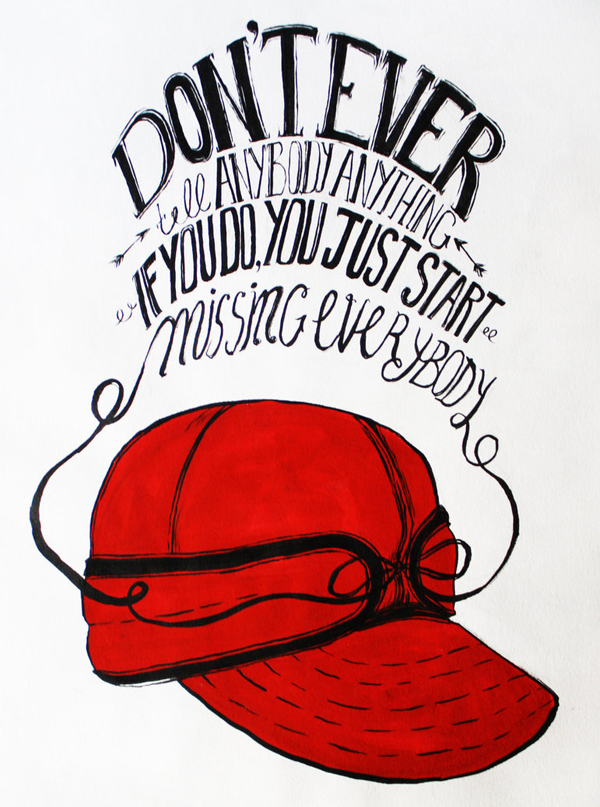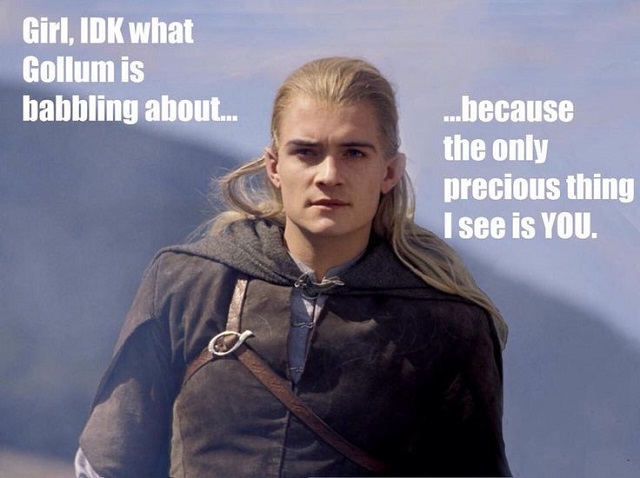The Catcher In The Rye can be defined as a “coin toss” novel; there is a fifty percent chance you might utterly love it, or a fifty percent chance you might completely despise it. Upon asking readers why they did not particularly enjoy the book, the main response was narrowed down to a single factor: Holden Caulfield, the narrator and antagonistic protagonist.

SOURCE: DeviantArt
Holden is the very definition of an antihero, and has a vastly repetitive, contradictory, lonely, angry, hypocritical perspective reflected through his actions in the course of his story. One can say his only redeeming quality is — ironically enough — the reason as to why he is miserable in the first place: his fondness for his two younger siblings and his romantic interest, Jane Gallagher.
As I continued reading The Catcher In The Rye, my initial frustration toward Holden paired equally with empathy as I thought, “Aw, man. Caulfield, you really need to stop the self-sabotage fest.”
In my case, the empathy sprouted after learning about his younger brother’s death three years prior the beginning of Holden’s quick descent to clinical depression. Allie Caulfield’s untimely death due to leukemia only encouraged Holden’s bitter vendetta on the concept of time and change. The fact that he could not protect Allie — whom Holden described as exceptionally kind, intelligent, and innocent — led to his evident distaste toward grown-ups or older people who continue living despite their “wrongful” ways, including himself. The Caulfield family moved past Allie’s demise without taking into consideration how Holden might have been affected, attempting to pass off as the perfect wholesome family, or what was expected of them during the ’50s.
The detail here: Subconsciously, Holden knows he is a hypocrite. He is more than aware of his own growing faults, which is why he isolates himself from everyone who had any expectations toward him. Simply put, he is terrified of growing up and becoming what he hates, and in doing so he engages in self-destructive behavior upon realizing he already is what he hates.
Some readers describe the end of the novel as abrupt, or unsatisfying; a cliffhanger in the most unorthodox of ways. Yet, that is part of what ties everything else together. If I had read in detail about what happened to Holden, about whether he did contact Jane Gallagher, or whether he came to terms with his grief regarding Allie, or whether he decided to actually put an effort in his academic shenanigans, it simply would not fit with the rest of his narration.
After all, Holden Caulfield is consistent in his massive lack of consistency.
Other YA similar to The Catcher In The Rye:
- The Perks of Being A Wallflower by Stephen Chbosky
- Me and Earl and The Dying Girl by Jesse Andrews
- I Am The Messenger by Markus Zusak
- The Secret Life of Bees by Sue Monk Kidd
- I’ll Give You The Sun by Jandy Nelson
Featured image via DeviantArt



